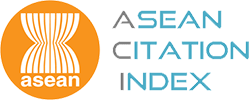AN APPRAISAL OF YEMEN’S ADHERENCE TO THE TRIPS AGREEMENT STANDARDS ON CIVIL AND CRIMINAL ENFORCEMENT MECHANISMS OF COPYRIGHT AND TRADEMARK INFRINGEMENT
DOI:
https://doi.org/10.32890/uumjls2025.16.2.7Abstract
The role of enforcement is crucial for the protection of intellectual property rights (IPRs), as it provides the rights holders with access to legal tools and remedies essential for safeguarding their intellectual creations. The Agreement on Trade-Related Aspects of Intellectual Property Rights (TRIPS Agreement) establishes a comprehensive framework for the enforcement of IPRs, covering both procedural and substantive elements that member states are obligated to implement within their domestic laws. These provisions are designed to enable effective and timely actions against IPRs infringements. As a member of the World Trade Organization (WTO), Yemen is obligated to harmonise its national intellectual property (IP) legislation with the enforcement provisions specified in Part III of the TRIPS Agreement. This article analyses the existing IPRs enforcement mechanisms in Yemen, with particular emphasis on both civil and criminal procedures. Utilising the TRIPS Agreement as a framework, this article examines the extent to which the enforcement mechanisms and remedies provided under Yemeni law align with the requirements set forth by the TRIPS Agreement. By adopting a doctrinal legal method, the required data for this article is gathered from the relevant statutes, case law, the official website of Yemeni government agencies, law books, and journal articles. Utilising the TRIPS Agreement as a framework, this article examines the extent to which the enforcement mechanisms and remedies provided under Yemeni law align with the TRIPS requirements. The findings indicate that the civil and administrative procedures and remedies in Yemen's IP laws are largely consistent with the stipulations of the TRIPS Agreement. Nevertheless, there remains scope for enhancement, especially with regard to the evidentiary provisions. In terms of criminal enforcement, both the Trademarks Act 2010 and the Copyright Act 2012 criminalise deliberate acts of trademark counterfeiting and copyright piracy, prescribing penalties that include imprisonment and fines. However, the existing penalties under these Acts are inadequate to serve as an effective deterrent against such violations. This shortcoming is in conflict with the requirements of Article 61 of the TRIPS Agreement, which mandates that penalties for these offences must be sufficiently severe to prevent future infringements. To ensure Yemen's full compliance with international standards and to enhance its efforts to combat trademark counterfeiting and copyright piracy, it is recommended that the country revise its IP laws to incorporate more stringent penalties, in alignment with the provisions of the TRIPS Agreement.
Additional Files
Published
Issue
Section
License
Copyright (c) 2025 UUM Journal of Legal Studies

This work is licensed under a Creative Commons Attribution 4.0 International License.










